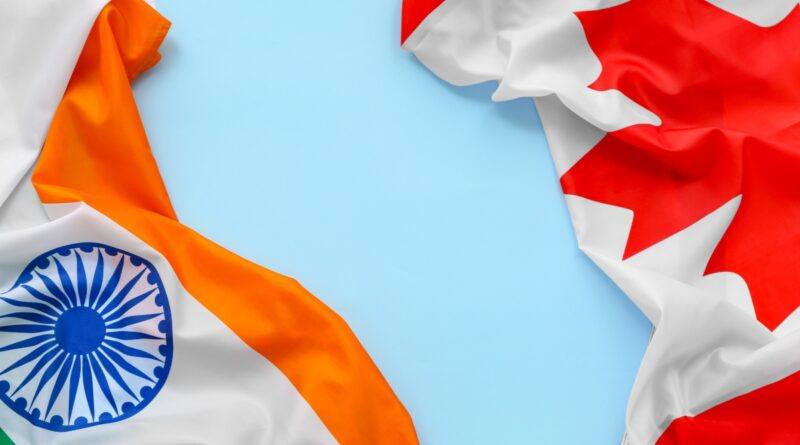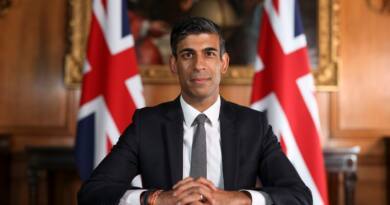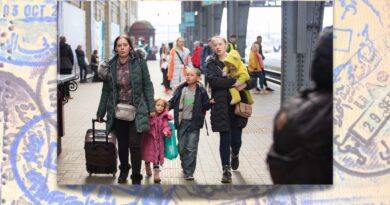Exclusive: Triumph Like Never Before – Indians And Canadians Unite
World Politics · The WFY · June 2025 WFY Bureau Desk – Sunita Krishnan
Canada–India Diplomatic Reset: Rebuilding Trust with Diaspora at Heart
A New Dawn for Two Democracies
In June 2025, nearly two years after a bitter diplomatic rupture, India and Canada have announced a reset—a formal reinstatement of high commissioners, restoration of visa services, and renewed commitment to shared priorities such as trade, technology, and trust. The thaw follows accusations, expulsions, and a public standoff sparked by the Hardeep Singh Nijjar affair, a crisis that tested both nations’ democratic resolve and diaspora bonds (apnews.com).
For the 1.86 million Indian Canadians—the largest non-European diaspora in Canada—this reconciliation brings more than stable careers and travel routes; it inspires renewed hope in a shared default: that global Indians can belong, influence, and prosper without straining their identities or host-country loyalty .
1. From Crisis to Co-operation – A Timeline of Reconciliation
- June 2023: Canada’s then-Prime Minister Justin Trudeau announced “credible allegations” of Indian agents’ role in Nijjar’s murder in British Columbia, prompting India to denounce intellectual interference and allege Canada sheltered extremists (apnews.com).
- October 2023: Both nations expelled diplomats; trade talks froze, and visa processing halted (en.wikipedia.org).
- June 2024: A brief thaw occurred at the G7 in Italy, though mistrust lingered (en.wikipedia.org).
- June 17, 2025: India’s PM Modi and Canadian PM Mark Carney met at the G7 in Alberta, agreeing to reinstate high commissioners, resume visa services, and explore cooperation in technology, food security, digital transformation, and critical minerals (apnews.com).
Described by Carney as “foundational” and praised by analysts as a “pragmatic reset”, the move signals a shared democratic recommitment, even amid unresolved political and security strains .
2. The Diaspora’s Relief – Restoring Safety and Certainty
For countless individuals of Indian origin in Canada, the past two years were lived in limbo and anxiety:
- Visa delays affected study paths, professional assignments, and family plans.
- Business visas evaporated; startup launches were scuppered by sudden uncertainty.
- Political tension triggered an uncomfortable tug-of-war over dual loyalties.
With the reset, all that is changing:
- High commissions resume services: student travel resumes; professional mobility begins to heal.
- Trade and business cautiously resume, with new frameworks expected for investment and strategic collaboration in critical minerals and tech (ft.com).
- Diaspora trust is being restored, especially among younger generations navigating multilateral identity.
This reconciliation is not online symbolism—it brings tangible benefits: economic stability, personal freedom, and renewed civic confidence.
3. Deepening Democratic Synergy
Canada and India share important democratic roots:
- Bicameral legislatures, rule of law, and federal governance.
- Vibrant diaspora engagement, which propels cultural diplomacy, innovation, and soft power.
- Academic cross-pollination: over 40% of Canada’s 800,000 international students in 2022 were from India, making India the top source nation (reuters.com, womanias.com, en.wikipedia.org).
The reset offers new purpose:
- Trade talks can resume, targeting the $9.4 billion merchandise flow between the two nations in 2023 (India exported $5.6bn; Canada $3.8bn) (en.wikipedia.org).
- Tech collaboration and critical-minerals trade—such as lithium—can accelerate industrial innovation and diversification.
- Cultural diplomacy can revive, with Bollywood collaborations and cultural festivals strengthened.
For the diaspora, this is more than national policy—it is a renewed chance to affect change in society, economy, and representation.
4. The First Hindu Foreign Minister – A Symbol of Restart
In May 2025, Canada swore in Anita Anand, the first Hindu and first woman of Indian origin, as its Foreign Minister (apnews.com, en.wikipedia.org).
- Born in Nova Scotia in 1967 to older-generation parents from Tamil Nadu and Punjab, Anand’s journey spans Queen’s, Oxford, Dalhousie, U of T, and public office (en.wikipedia.org).
- Her historic oath on the Bhagavad Gita reflects evolving representation—even as her appointment may help de‑escalate the Khalistan narrative in Canadian politics and encourage nuanced understanding (tribuneindia.com).
For diaspora readers, she embodies what the reset seeks to nurture:
- Cultural inclusion
- Ethical representation
- Bridge‑building
Her leadership echoes the reset’s promise: a freer, more trusting, more equal partnership.
5. Diaspora Role – Healing, Partnerships, Representation
The reset places diaspora squarely at the centre of rebuilding:
- Cultural Narratives
- Host town halls, webinars, film festivals to share stories.
- Support community forums that inform Canadians and Indians about shared values and historical nuances.
- Economic Initiatives
- Indian-Canadian entrepreneurs can facilitate trade delegations, start diaspora-led impact funds, and link to Canada’s green transition (especially lithium, solar, and min-tech).
- Initiatives like Indo-Canadian Incubator, Startup Toronto–Bangalore, or diaspora VC mentorship can flourish.
- Academic Partnerships
- With 40% of international students from India, universities can launch bilateral research projects in AI, climate resilience, agriculture, and public health.
- Scholar-ships and fellowships co-designed by diaspora can strengthen ties.
- Political Engagement
- Diaspora MPs and grassroots groups can work on long-term public policy frameworks, influencing digital infrastructure, trade cooperation, consular reach, and electoral fairness.
6. Challenges in the Rebuild
Although the reset is hopeful, real hurdles remain:
- Khalistan tensions persist: 770,000 Sikh Canadians include vocal separatists whose presence strains deeper trust (en.wikipedia.org).
- Electoral interference claims merit closer scrutiny—Canada ranks India second only to China in 2023 election meddling allegations. Continued dialogue is essential .
- Trade stagnation: A stalled Economic Partnership Agreement since 2023 must be revived quickly for benefits to materialise .
- Diaspora fatigue: Without strategic coordination, goodwill may splinter into isolated efforts.
7. A Way Forward – Realistic Optimism
WFY recommends a clear focus on:
- Accountable institutions led by diaspora voices.
- Joint initiatives in tech and education with measurable deliverables.
- Narrative-building events that humanise the reset, featuring personal diaspora stories, shared heritage, and collaborative ambitions.
Every visa granted, every startup memorandum signed, and every cultural event mounted should reinforce the narrative: this reset delivers real-world change for global Indians and strengthens civic solidarity in both countries.
The Reset Isn’t Just Political; It’s Personal
The Canada–India diplomatic reset of June 2025 is more than a headline. For Canadians of Indian origin, it is the renewal of belonging, opportunity, and representation. It is the restoration of mutual respect—across embassies, economies, campuses, and communities.
As two democratic giants recalibrate their relationship, the diaspora stands as both witness and architect. This reset invites them to lead: to build trust, foster projects, and embody the values that once made Canada–India a model of global partnership.
At a time of geopolitical flux, WFY celebrates this reset, not just for restoring ties, but for reasserting what Indian diaspora can achieve when diplomacy, democracy, and diversity meet. Let the healing begin!
By Sunita Krishnan




